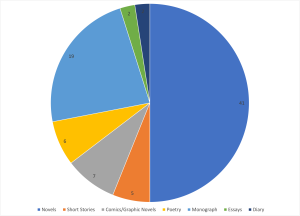I actually believe in manhood as something that’s real, that’s inherently different than womanhood, and that is, potentially, awesome. And I don’t find a belief in manhood to be reactionary or antifeminist — indeed, to blame the distrust of men on feminism would be wildly wrong, a cruel characterization of an optimistic movement. What feminism has made possible is an ability to have hope for new ways of integrating gender into the world. And I refuse to conflate a critique of the way male power is sometimes — even often — abused with a sweeping dismissal of manhood itself. This is the gift, I guess, of reading a lot of nineteenth century novels: that I think that strength and compassion can be linked, that leadership is a responsibility, that privilege doesn’t need to be apologize for if it is generously used.
I realize this argument might be a little surprising for someone like me to make — that is, someone schooled in the kind of gender theory that makes it difficult to treat something like “manhood” as a thing, rather than a construction, an idea, and, even, a bad and dangerous idea. But there is the world we desire, and then there is this world we are in, a world where I find myself raising two sons, the older of whom is beginning to wonder what his nascent manhood means. In this world we are in, I want to help my sons imagine their manhood as essential to their best selves, not as a threat to it. What I am hoping for is books that guide them as they learn to be inside their manhood, rather than always on the outs.


